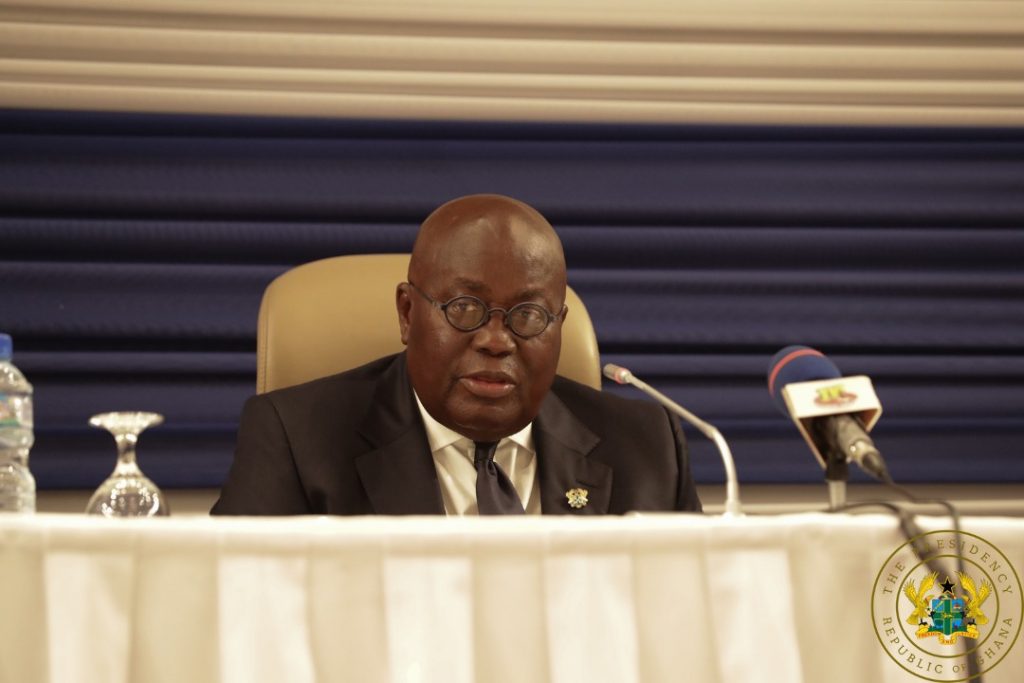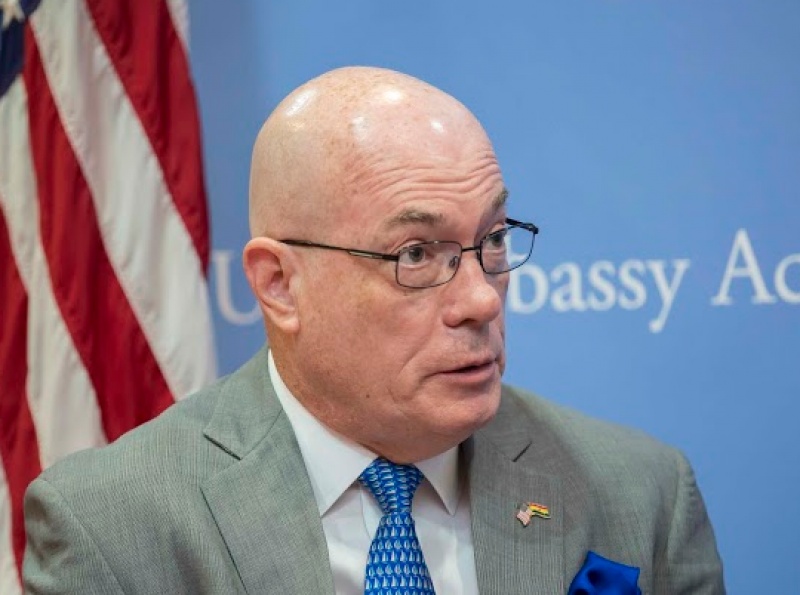US Ambassador to Ghana, Robert Jackson, believes the execution of President’s Nana Akufo-Addo vision is more likely to propel Ghana’s growth at a faster rate as compared to the plans of past presidents.
In the Ambassador’s view, President Akufo-Addo is “more visionary than some recent Ghanaian leaders.”
[contextly_sidebar id=”yua8RAVKO876k5VNshJALLDMHzlzlTQO”]Commenting on the Akufo-Addo administration’s ‘Ghana Without Aid’ agenda on online news portal, Ghanaweb’s 21 Minutes show, Mr. Jackson was optimistic that “Ghana will get beyond aid and I think it will happen sooner rather than later.”
In the interview, he noted that despite being a long-term plan, the one-district-one-factory policy is key to this vision.
“President Akufo-Addo’s vision of one-district-one-factory may not be realized within his first term or even his first term, if he get’s one. But the idea is exactly what is needed to get beyond aid; that you have to industrialize, that you build your industrial base, that you create jobs so that people do not want to trek across the desert and be potentially enslaved in Libya or even if they make it to Libya, drown in the Mediterranean.”
The one-district-one-factory initiative is intended to leverage the private sector to set up at least one medium to large scale industrial enterprise in each district of Ghana.
The government’s hope is that this will equip and empower communities to utilize their local resources in manufacturing products in a bid to increase agricultural and manufacturing output, reduce reliance on imports and increase the production of consumer goods and food availability.
For Mr. Jackson, the current administration’s willingness to rely on private sector for development is more critical to an economic turnaround.
“I think ex-president Mahama had a vision too, so I want to give him credit where credit is due, his emphasis was on infrastructure, which is very important – schools, clinics, hospitals, roads; President Mahama did a lot for this country,” he said.

But in the Ambassador’s view, President Akufo-Addo’s decision to “make the private sector the engine of growth rather than government being the driving force is how I see the difference between the two of them. Both of them had visions for the country, I think President Akufo-Addo’s vision of private sector-led growth is likely to create more jobs and propel the economy forward faster than the infrastructure investments, but the infrastructure investments were important.”
Ghana’s growth prospects
As evidence of the progress of the economy, President Akufo-Addo, during his 2018 State of the Nation address, cited the strong trajectory of the Ghana Stock Exchange Composite Index in January 2018, which gained 19 percent in dollar terms, according to benchmarks tracked by Bloomberg.
The World Bank has also projected that Ghana’s economy will probably grow by 8.3 percent this year, which will be the fastest in the world in 2018.
The President said he expects these improving macroeconomic indicators to usher Ghana out of the International Monetary Fund programme later this year, after his administration extended the 2015 programme.
–
By: Delali Adogla-Bessa/citifmonline.com/Ghana


